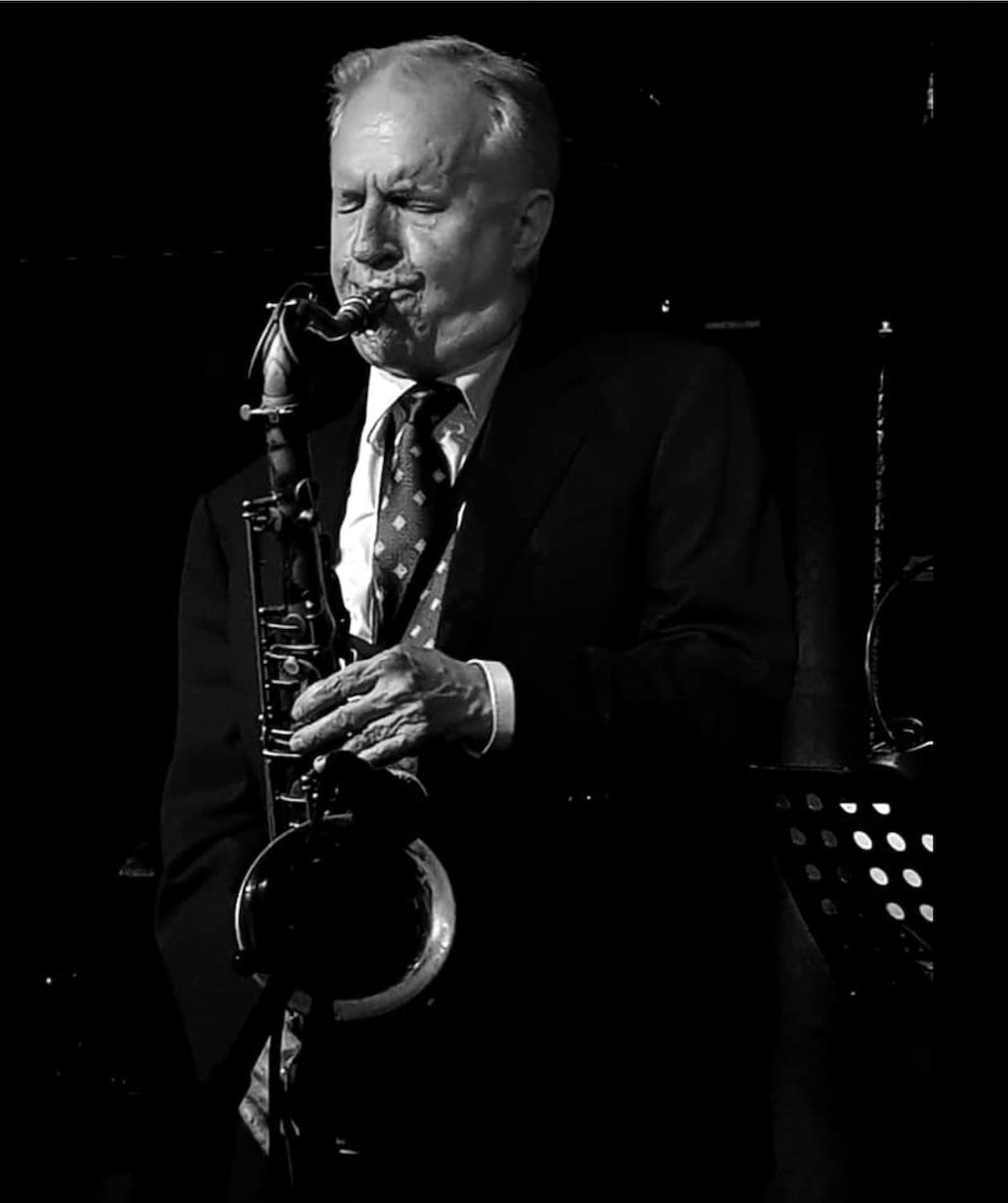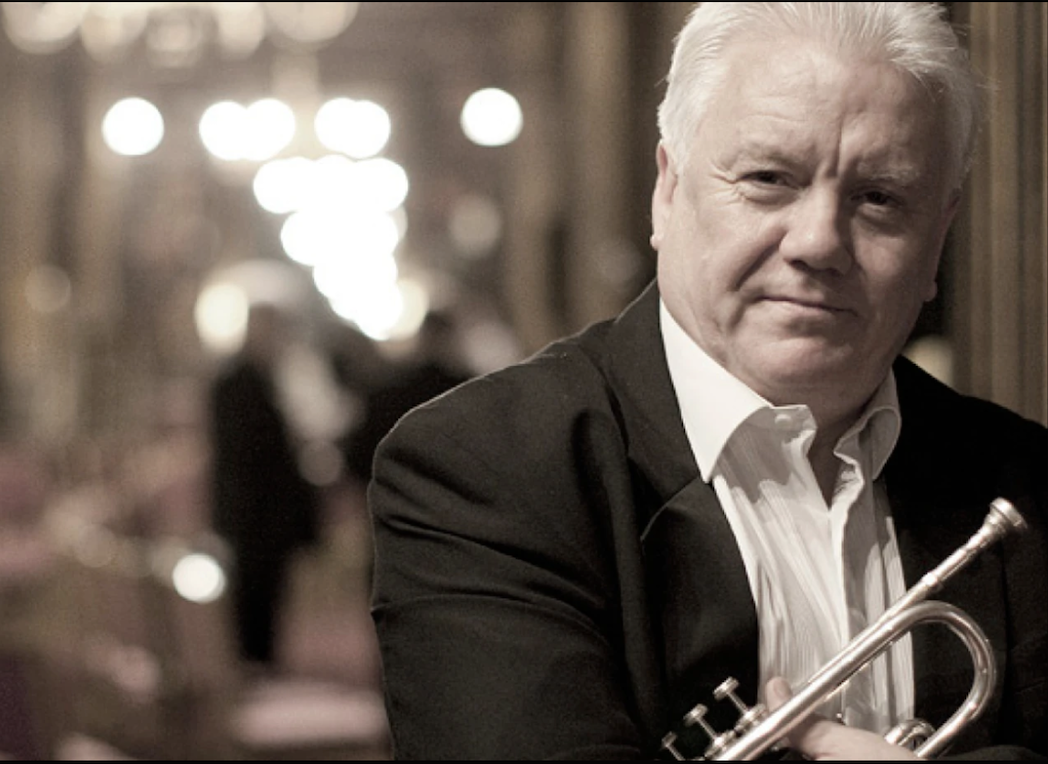To commemorate the 50th anniversary of Duke Ellington’s death – on May 24, 1974 – I’ve asked a number of jazz musicians and aficionados to share their thoughts and feelings about this titan of the music. Today: the ace British trumpeter Enrico Tomasso. Next time: Dick Hyman

How did you first hear or become aware of Duke Ellington and his music?
Being the son of a jazz musician, the music of Ellington was a part of my regular musical listening from before I can remember.
Which Ellington recording/tune first piqued your interest?
My father had a heathy percentage of Ellington in his collection and the ones featuring Johnny Hodges were played on a regular basis as he was a favourite of my mother also. I remember being introduced to the sound of “Tricky” Sam Nanton and my father explaining the plunger-pixie technique which created a unique and distinct sound producing a “yah-yah” to the notes played. He then told me an anecdote about when Tyree Glen stepped in for “Tricky Sa”’. Ellington would let Sam take some leave only if he passed on his closely guarded technique to his substitute. With great reluctance he taught Tyree the skill with the proviso, “If you tell anyone else I’ll kill you.” As I was already playing trumpet I naturally was exposed to the way Cootie Williams developed a similar technique on the trumpet – which I’ve studied and used my whole career. The Ellington way of writing made his band instantly recognisable and sounded so different to his contemporaries even to my child’s ear.
Which period or periods of Ellington’s career are you fondest of?
My induction into Ellington was non-chronological thus I would hear recordings from differing periods, often of the same song, which led to me appreciating his whole output equally and as a constant “work in progress”. I still listen to and love tracks from across the entire output from the 1950s and 1960s back to the early 1920s.
When you hear his name being mentioned, what springs to mind?
The fact that he was the biggest innovator of jazz composition and development and was always years ahead of contemporaries. For example, you can hear certain harmonic structures being used in the 1930s recordings that only became the mainstream in post-bop forms. Also, his way of hiring musicians for their individual sounds to enrich the collective ensemble in a certain way was inspirational.
Did you ever see him and his band perform?
I feel very fortunate not only to have heard the Ellington orchestra live but also to have met some of the iconic Ellingtonions. The venue was the Wakefield theatre club in about 1969/70 and my father. in his inimitable fashion, got us backstage into the band room where we met Cootie Williams, Jimmy Hamilton and Cat Anderson. Cat was extremely helpful to me as a developing trumpeter and my mum reminded me in later years that we invited him to stay and have some home-cooked Italian food for which he was graciously thankful.
Which are your favourite recordings? (And why?)
It’s always hard to answer this question. I have so many favourites – picking the best is impossible. Old King Doojie is one of them. A perfect example of Ellington’s advanced harmonic sense. The theme stated on the saxes is indicating the key of Cm whilst the response from the brass intimates an entirely different key of Bb major. The suspense this creates, played with startling vibrancy by the ensembles and perfectly balanced solos alongside the driving rhythm of Sonny Greer and co, adds up to an incredible piece of music which I describe as no less than genius. I can repeat this critical appreciation to a hundred more recordings and still not be able to pick a favourite.
Are there any particular Ellington numbers you like to play?
Answer to this is most of them. I have been fortunate to have performed with many bands – notably The Midnight Follies, Harlem and Echoes Of Ellington – playing Ellington transcriptions from every period, and the experience is so rewarding. Playing any of the ballads – eg: In A Sentimental Mood, Sophisticated Lady, Prelude to a Kiss, Black Butterfly …. – in small band settings is always a dream.
Which are your favourite albums? (And why?)
I will admit to a favourite here as Live at Newport is such an important milestone in the Ellington band. A pivotal time of the Orchestra between periods, with players like Clark Terry helping the transition. And of course the incredible 27 choruses of Paul Gonsalves as part of The Festival Suite, a forerunner to many contemporary concepts in Jazz orchestral writing. But apart from this huge significance it shows that Ellington could get through to the audience and create a live musical experience of unsurpassed joy.
Do you remember when Duke Ellington died – and what the reaction was like?
I was only 13 so I don’t remember much about it. In some ways I felt he was immortal because of the legacy he left behind.








